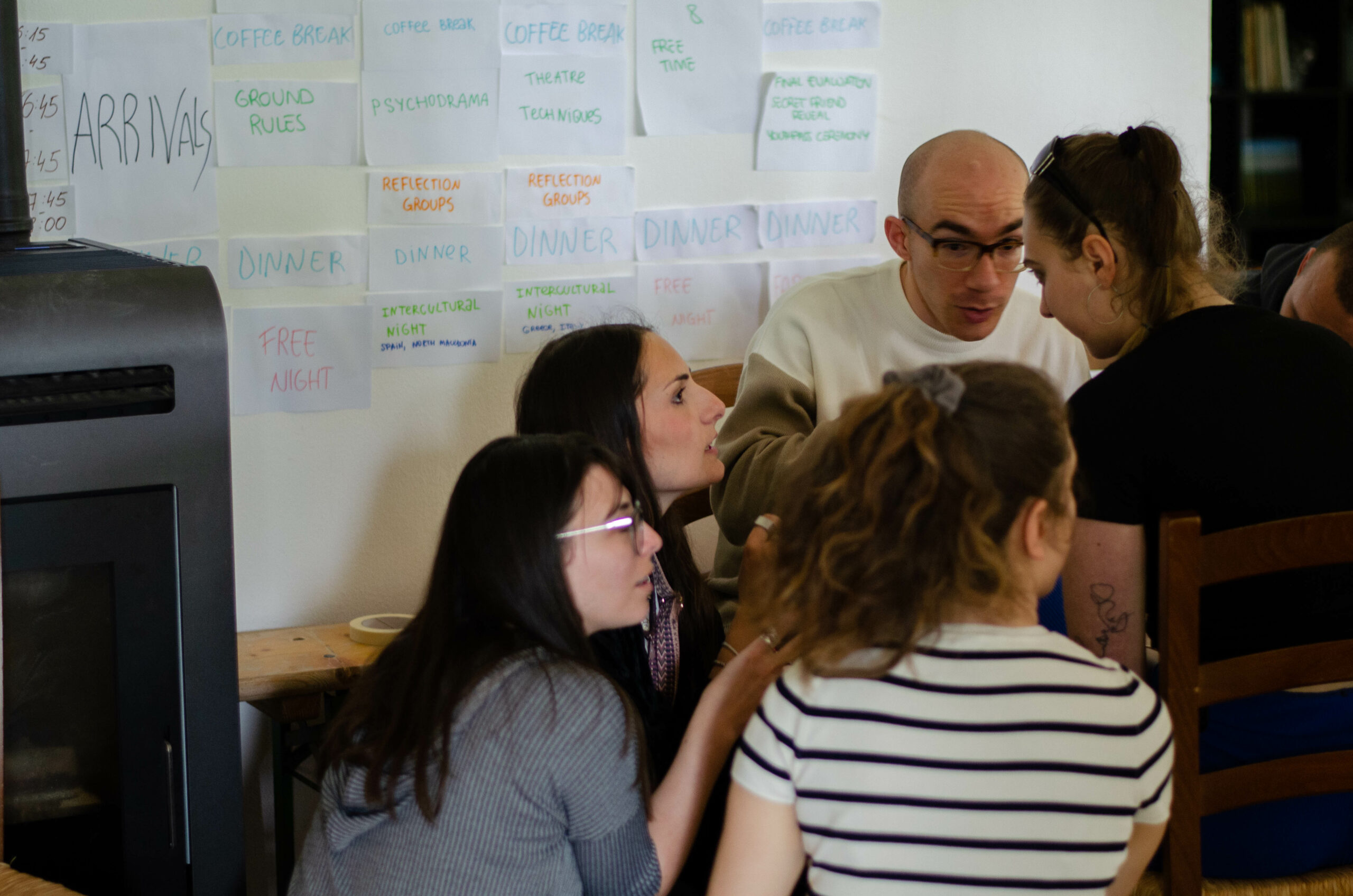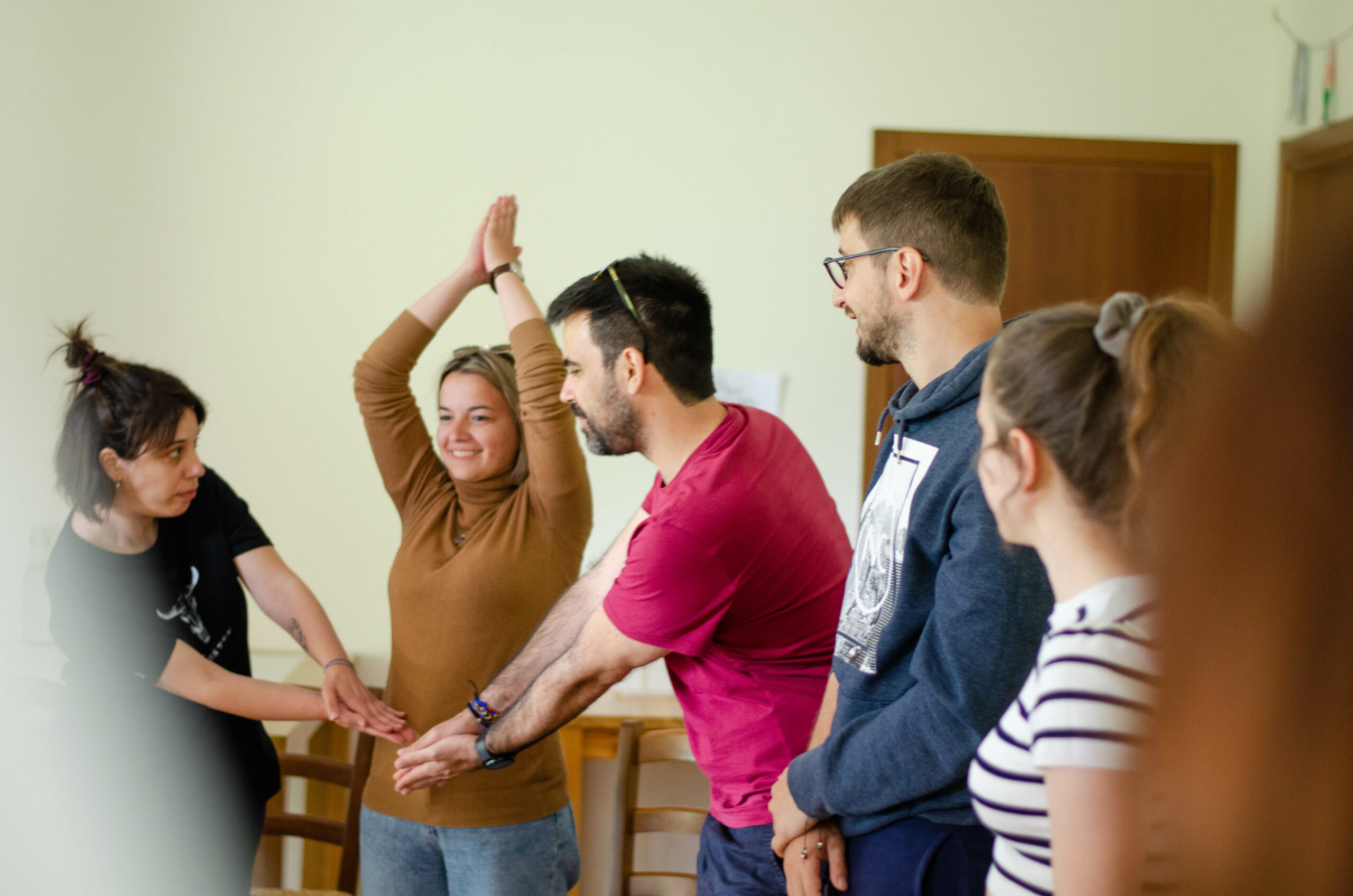More than 10,7000 participants (75%) in Erasmus+ mobility were affected by the pandemic; 42% continued their activities with different arrangements; For 22% the activity was temporarily suspended; For 36% was definitely cancelled; 3/4 of the organizations in youth sector closed their facilities temporarily; Youth workers lost access to young people they normally work with.
The drop in engagement is particularly significant for youth from vulnerable and disadvantaged groups, showing the importance of face-to-face youth work. Analysis detected the need for a new approach for youth work and NFE in online spaces – quality digital youth work, safe spaces, but also blended solutions to motivate youngsters to return to face-to-face activities when possible.

YOU.TH is meant to equip youth workers with methodologies and practices used mostly in the field of Theatre which can produce inclusive NFE activities and be implemented virtually.
The research made by our project groups has shown that different social theatre techniques are used to address current issues such as the integration of immigrants, violence, bullying, drug addiction, abandonment of suburbs, etc.
Theatre and performing arts are used as tools for dialogue, cultural encounters and exchanges, to create links and empathy between people and groups with different feelings and behaviour, for experimenting with shared and participatory proposals that are real answers and solutions to the problems encountered by people, groups and communities.
Theatre can therefore be put at the service of youth workers, without assuming that they become actors or theatre specialists, but that they can use it as a proper means of working on youth inclusion.
The pandemic deeply impacted the non-formal and informal learning processes promoted by youth work. Due to physical distancing and the lack of face-to-face activities many youngsters suffered and became more marginalized.
COVID-19 created new barriers, but also new opportunities for youth participation. For this reason we also aim to support the digital youth work proposing a dual and parallel pathway, reinforcing youth workers both in creating inclusive activities by working through theatre methodologies and in transferring them online.

The project promotes and supports, and answers the needs of the partners and their target groups about:
– The use of non formal and informal learning combined with theatre methodologies and practices for inclusion in their activities with young people,
– Cooperation with other European organisations, quality, inclusion, creativity and innovation, through a more agile development of digital techniques and theatre practices to foster the inclusion of all youngsters.
